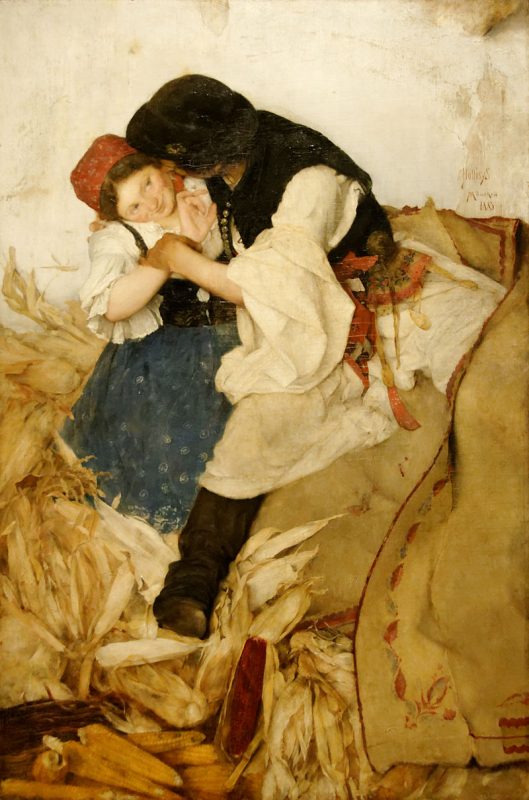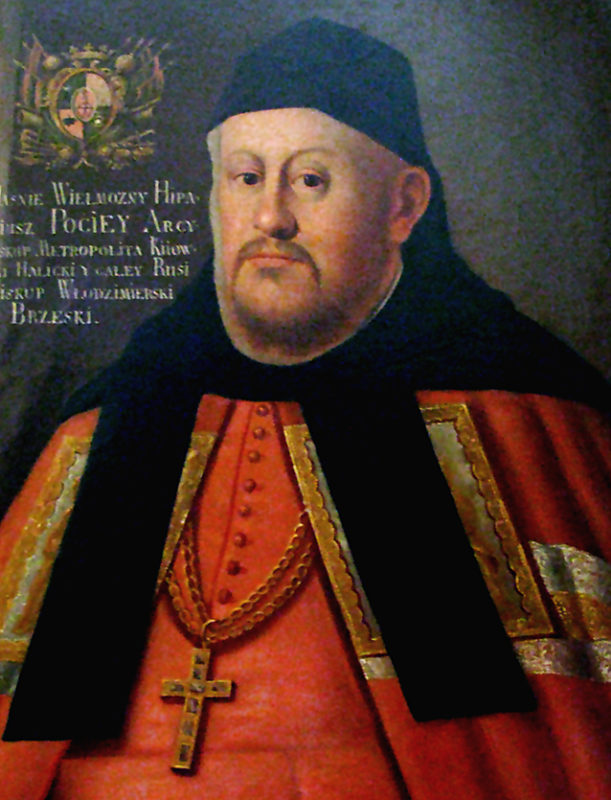According to media reports, the Hungarians of Transcarpathia show increasingly anti-Ukrainian sentiments and growing intention to reunite with their ancestral homeland
The orchestrated chorus of “Ukraine’s best friends” in the EU has one exception. This is Hungary. This is where the wave of Russophobia in the media is not so strong, and Kiev is not praised too much. But it would be a mistake to believe that Budapest’s untypical policy has anything to do with warm attitudes to Russia. Historically, Hungary has nothing to love Russia for. In 1848, the army of the Russian Empire suppressed the Hungarian revolution, and in two world wars Hungary fought against the Russian Empire and the Soviet Union.
Quite a chilly relation of Hungary towards Ukraine can be accounted for by Ukraine’s own policy, which has an outstanding ability to turn its friends into enemies out of nothing.
After the collapse of the Soviet Union, the relations between the two states were absolutely friendly. In 1991, Hungary was among the first to unconditionally recognize the independence of Ukraine, and it was the first of the neighbor countries to sign a treaty of neighborliness and cooperation. Budapest and Kiev recognized each other’s borders as inviolable, and even agreed to help each other against any aggression by a third country.
The territory close to the one of the contemporary Hungarian state formed after the disintegration of the Austro-Hungarian Empire and the end of World War One. Then, in 1920, according to the Treaty of Trianon, Hungary lost many territories with Hungarian ethnic majority. They became parts of Austria, Czechoslovakia, Yugoslavia, Romania, and Poland. Since then, the Hungarians claim they are the largest European divided people. This humiliation of Hungary resulted in revanchist sentiments in 1930s, and it led Budapest to an alliance with Berlin, which promised that the lost would be returned.
After the end of World War Two, the borders according to the Treaty of Trianon, with minor changes, were restored. However, the memory is still alive about this unjust, according to the Hungarians, treaty that divided the nation into parts, as well as the hope for a reunion of the Hungarians living in different countries. According to the contemporary Constitution, the Hungarian state must protect all the Hungarians regardless of their location and nationality.
This issue is an important component of both foreign and domestic policy of Hungary.
In early 1990s, Hungary believed that the strengthening of the Ukrainian state would make Kiev an ally of Budapest in protecting the Hungarian national minority as well as in the issues of the integration of the European countries. The official Budapest and the Hungarian public on the whole at first had a positive reaction to the Maidan of 2014 in Ukraine.
However, the events that followed raised tension between the two states.
The ethnic violence in Korsun, the events of May 2 in Odessa, as well as the active participation of Ukrainian radical nationalists in the “revolution of dignity”, resulted in serious concerns in Budapest. Prime Minister of Hungary Viktor Orbán at his inaugural oath in April 2014 urged Kiev to grant autonomy to the Hungarian minority.
“Ukraine can be neither stable nor democratic unless it grants its minorities, including the Hungarians, their rights. And this means double (Hungarian ― Rossa Primavera News Agency) nationality, group rights, and autonomy,” Orbán said.
The official Kiev began to express indignation in a manner that demanded Hungarian Foreign Minister János Martonyi to offer explanations to his leader’s words. However, shortly afterwards the Kiev regime had much more serious problems in the east of the country, and the escalating scandal was quickly stifled.
Serious tensions between the two states rose after Kiev adopted an education bill in 2017. This bill strongly restricted the chances for children to get education in their native tongue. At that moment, Hungary, Romania, Russia, Bulgaria, and Greece criticized the new bill. However, Budapest’s reaction was the most violent.
“Ukraine has ‘stabbed Hungary on its back’ by the amendments to the education law, which strongly violate the rights of the Hungarian minority,” Hungarian Foreign Ministry Péter Szijjártó said a few days after the Verkhovna Rada (the Ukrainian Parliament) adopted the education bill.
Kiev threatened that Kiev would face consequences. “Hungary will block any Ukraine’s European integration steps within the EU,” Szijjártó said. After a while, he added, “We can guarantee that all this will be very painful for Ukraine in the future.”
This conflict has not been overcome. Despite the fact that Ukraine prolonged the transition period from 2020 until 2023, and a bilateral Hungarian-Ukrainian working group was established, the questions about this bill have repeatedly raised in the bilateral relations.
Another exacerbation in the Hungarian-Ukrainian relations happened one years later. In 2018, the trigger was the policy of issuing passports to ethnic Hungarians in the adjacent countries. Orbán’s government began to grant citizenship to many Hungarians in Transcarpathia region.
According to the Ukrainian law, Ukrainians could not have double nationality. Apparently, this measure was first of all aimed against Russia, and Kiev had long turned a blind eye to the issuing of Hungarian passports in Transcarpathia. However, this practice could not last forever. An acute diplomatic conflict took place between Kiev and Budapest in September 2018.
Regarding the issuing of Hungarian passports, then Ukrainian foreign minister Pavel Klimkin said that in Transcarpathia region, “there will be more Ukraine, every year more Ukraine. Exactly there, and we will certainly accomplish this.”
The Hungarian Foreign Ministry paid back with a statement saying that “the inciting of hatred against the Hungarians in Ukraine will continue as long as the current president is in office.” At that moment that was Pyotr Poroshenko.
An attempt to quietly stifle the conflict failed despite the UN mediation. As a result, the Hungarian consul in the city of Beregovo in Transcarpathia region was expelled from Ukraine, and the Hungarian authorities expelled a Ukrainian diplomat of the same rank.
Zelensky’s victory in the presidential elections seemingly gave hope for better relations between the two states. However, exactly the opposite thing happened.
Another spiral of escalation in the relations took place in 2020. The reason was the administrative reform in Ukraine. According to it, Kiev planned to merge Beregovo region of Transcarpathia with Mukachevo region, which faced strong disappointment in Budapest. The point is that Beregovo region is densely inhabited by Hungarians, which is not the case for Mukachevo region. If merged, the Hungarian population would have simply dissolved among the Ukrainians. After protests from the Hungarian side, Kiev had to revise its plans. Begerovo region was merged with Vinogradovo region. The territory of the new entity almost perfectly match the area where the Hungarian community of Transcarpathia lives.
Tension continued to escalate in the fall of the same year. In October, local elections took place in Ukraine. Budapest directly supported the party of the Hungarians in Ukraine. The Ukrainian side denied entrance for two high-ranking Hungarian officials for agitation in the region. Officially, their names were not made public, but according to media reports, those were politician István Grezsa and Secretary of State responsible for ethnic policy in the government Árpád János Potápi. The Hungarian Foreign Ministry condemned Kiev’s moves as miserable and senseless. To make things worse, the Hungarian Foreign Minister Péter Szijjártó in his post in social media urged the residents of Transcarpathia to vote for the Hungarian party. The post was published the day before the voting in Transcarpathia.
The Ukrainian Foreign Ministry reacted with a tough statement saying, in particular, that “official Budapest blatantly demonstrated its direct interference with Ukraine’s internal affairs, and it undermined Ukraine’s consistent effort to constructively resolve the current issues in the Ukrainian-Hungarian relations.”
In early December, the relations deteriorated even more. The Ukrainian security services made searches among ethnic Hungarians in Transcarpathia. According to the law enforcement officials, they found printed materials promoting the ideas of an ethnic autonomy in Transcarpathia. Budapest appealed against Ukraine’s actions. The Hungarian Foreign Minister Péter Szijjártó asked NATO for solidarity, and he urged to send an OSCE mission to Transcarpathia. The Hungarian EU MP’s said that Kiev was inciting “a civil war situation.”
The conflict was resolved, but it did not improve the relations between the two countries. Besides, Budapest never missed an chance to put a spoke in Kiev’s wheel.
For example, in late August of 2021, the Kiev authorities tried to make an international show to condemn Russia, which was called “The Crimean Platform.” According to the organizers, in the presence of the leaders of the most politically important countries, ritual condemnations would be said against the so-called “aggressor and occupant” of Crimea, Moscow. Also, further international statements were expected that Crimea must be Ukrainian. However, something went wrong.
In his speech at “The Crimean Platform,” President of Hungary János Áder, instead of the expected wave of curses and accusations against Russia, began to carefully criticize the Ukrainian government.
“Anyone learning his language can be fined. This flies in the face of the democratic ideals, and it does not reflect well on the titular nations,” he said in his address alluding to the Ukrainian education law.
“Hopefully, Ukraine will be able to ensure safe future for all its nationals, and the Hungarians will feel at home in Ukraine,” the Hungarian president added.
At the same time, talks between Budapest and Gazprom were taking place on a new long-term gas contract with quite privileged prices, and it was specifically discussed that the supplies would go beyond the Ukrainian gas transportation system. Later, the signing of this contract resulted in a really hysterical reaction in Ukraine.
“This is a blow, and we will react appropriately, because there is no place for regret or condolence here,” said Ukrainian Foreign Minister Kuleba, promising to appeal to the European Commission against the Hungarians inappropriate policy.
In response, the Hungarian Foreign ministry melancholically noted that they could appeal wherever they wanted, but gas contracts are internal affairs of a sovereign state, and Kiev must not interfere. A while later, the Hungarian foreign minister explained his Ukrainian colleagues that “to Hungry, energy is a matter of security, sovereignty, and economy, but not a political issue. We cannot heat our homes with political statements.”
Source: Rossa Primavera News Agency




